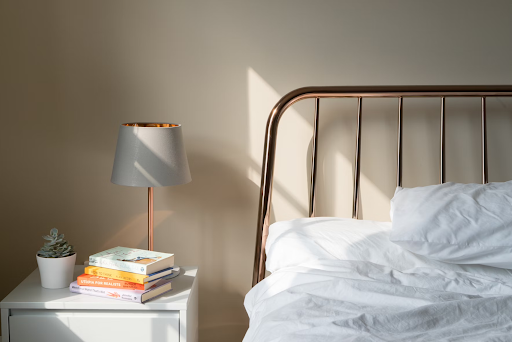How Alcohol Affects Your Sleep

Author: Jonathan Warren
For many of us, the perfect way to unwind after a long stressful day is to reach for a beer or a glass of wine. Perceived wisdom suggests that not only is it the perfect way to relax, it can also help us get off to sleep at night. A few alcoholic beverages can leave us feeling drowsy, but is it accurate to say it helps us sleep, and what are the true effects of alcohol on our sleep?
For everything on how it affects your nightly kip to how you can maximise good rest after drinking, read our guide to alcohol and sleep.
Does Alcohol Help or Hinder Your Sleep?
It induces faster sleep
Alcohol has a profound effect on our body’s ability to sleep, and for the most part, the effect is negative.
You might find that after a couple of drinks it’s much easier to drop off to sleep. Alcohol is a depressant, which has a sedative effect on your body. That’s why alcohol can lead to a relaxed feeling and eventually help you get to sleep faster.
On the face of it, this might seem positive, but once you are asleep, alcohol has much more damaging effects on your quality of sleep.
It breaks your circadian rhythms
Many of your body’s functions, such as metabolism, mood, and sleep, are regulated by circadian rhythms. The parts of your brain that deals with circadian rhythms are disrupted by the consumption of alcohol, hindering its ability to synchronize itself on your usual 24-hour clock. When it comes to sleeping, this can bring about problems during the night.
Firstly, alcohol suppresses melatonin, which is an essential chemical in regulating sleep cycles. Alcohol disrupts your ability to recognise and respond to light cues, a key part of keeping your sleep cycle in sync.
Alcohol also increases the amount of adenosine your body generates. Adenosine is a sleep-regulating chemical that rises the longer you are awake, as well as helping to reduce chemicals that are linked to wakefulness. The increase in adenosine helps you fall asleep, but then quickly subsides, increasing the chance of you waking up in the night.
It blocks valuable REM sleep
Alcohol shifts the normal sleep cycle to contribute to a feeling of sluggishness when you wake. When you’ve been drinking, you’ll spend longer in deep sleep but less time in Rapid Eye Movement (REM) sleep. REM sleep is your body’s window to restore and regenerate. Reduced due to the consumption of alcohol, less REM sleep leaves you feeling fatigued (and hungover) the next day.
It brings more interruptions during the night
Drinking alcohol also makes it more likely you’ll be forced out of bed in the middle of the night. Whether that is for a drink of water due to dehydration or a trip to the toilet due to a full bladder, alcohol makes it more likely we’ll have a disrupted night’s sleep.
How to Sleep Well After Drinking Alcohol
For many of us, drinking is just a part of our lifestyle. On balance, the damage it does to our sleep and other health areas is acceptable considering the enjoyment it can bring. There are things you can do to reduce these sleep-related downsides.
For a better night’s rest, add these three to your next night out.
Make your bedroom a welcoming one
Before you head out, make your bedroom as comfortable and conducive to a good night’s sleep as possible.
Start with your sheets. Plan ahead and apply a fresh set of bedding to your bed before you head out. Sweat and dirt from used sheets are a major cause of disruption to your sleep. The soft, luxurious feel of fresh sheets will help you sleep soundly through the night.
Think of other common distractions and take steps to limit them. Find yourself forgetting to draw your curtains when you come in? Do it before you leave the house, reducing any potential for an early rise when the sun comes up. Adjust your radiator and central heating to just the right temperature for the time of year or bring a fan in if it’s during the height of summer. Otherwise, the heat and humidity could lead to you waking up feeling hot and sweaty during the night.
Finally, the smartphone. Buzzing, bleeping and blaring lights from late-night calls and texts from friends wondering where you’ve gone could lead to an irritating mid-sleep disruption. Remember to put your phone on silent and leave it facing the surface it’s on to reduce distractions.
Once you call it a night and hit the hay, you’ll benefit from less potential for distraction by light, heat, or noise - resulting in restful sleep.
Eat a balanced meal
Nights out are often teamed with fast food like late-night kebabs or cheesy chips, but these will only serve to heighten your discomfort when you go to bed. Try and avoid saturated-fat heavy meals and eat something balanced before you head out.
Choose a balanced meal that will release its energy slowly and not leave you feeling full and sluggish. Include plenty of protein, mixed with some carbs, fat and vitamins. This way, any alcohol introduced into your bloodstream will be done so gradually and your body can process it easier.
Take on plenty of water
Water is one of the best ways of avoiding a nasty next-day hangover. Try to incorporate water into your evening out, alternating between alcohol and water throughout the night. Alcohol brings on a feeling of dehydration. Replace those fluids and you’ll feel fresher during the night and when you wake up the next day.
Unless you’re willing to give up alcohol altogether, disrupted sleep is just one of the things you’ll have to deal with after you’ve been drinking. Whilst we should never use alcohol as a means to help us sleep, there are steps we can take to reduce the problems it causes, helping us feel somewhat fresh the morning after.



